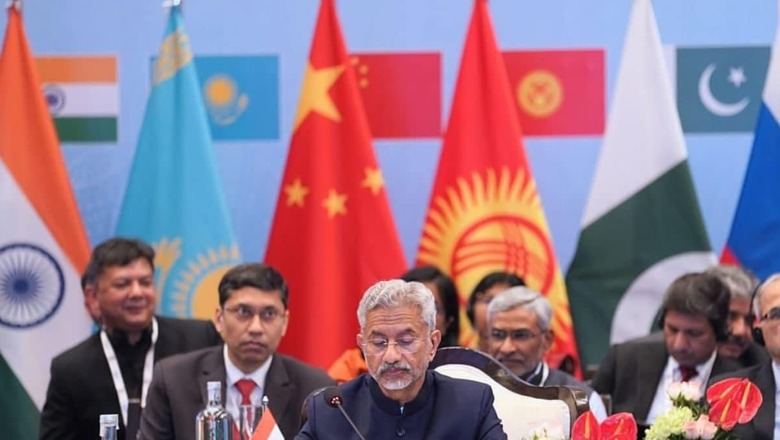
views
South Korea recently released its national security strategy, highlighting the significance of public diplomacy in the country’s statecraft. The strategy emphasises the integral role of public diplomacy, culture, and soft power in shaping South Korea’s national security orientations, particularly in fostering favourable international opinion.
One key aspect of South Korea’s strategy is its aspiration to build and improve relations with Japan, despite historical tensions. The document outlines the government’s commitment to expanding private exchanges and advancing public-private initiatives, with a particular emphasis on enhancing communication opportunities for future generations through public diplomacy and related endeavours. By recognising the potential of public diplomacy in shaping international opinion, South Korea aims to improve relations with Japan and create a more favourable environment for its national security interests.
The strategy also underscores the use of South Korea’s soft power to foster favourable international opinion. The government intends to leverage its strengths in areas such as K-pop and K-drama to enhance its global image. However, the strategy goes beyond mere image-building, acknowledging the importance of translating global interest and goodwill into support for South Korea’s policies. This understanding of public diplomacy highlights the need to not only change international opinions but also ensure that these opinions align with and support the country’s policies.
Furthermore, the strategy emphasises the involvement of the private sector in South Korea’s public diplomacy efforts. In the case of North Korea, the government aims to establish an “inter-Korean social and cultural governance” through a consultative platform involving private exchange organisations. This platform seeks to foster collaboration in areas such as religion, academia, and history. By engaging the private sector, South Korea recognises the potential for greater synergy and effectiveness in its public diplomacy initiatives.
Strategic communication with like-minded allies is also a priority for South Korea’s government. The strategy emphasises the importance of maintaining close ties and effective communication with key allies such as the United States, Japan, the European Union, and Australia, particularly on matters of overall economic security. This focus on strategic communications highlights the understanding that strong alliances and partnerships are crucial for national security and can be reinforced through effective public diplomacy efforts.
The United States serves as another notable example of a country that ties public diplomacy to national security. Public diplomacy has been a key aspect of US foreign policy since the World Wars and has evolved over time. From the United States Information Agency to its current placement within the State Department, public diplomacy is employed with the national security interests of the US in mind. The US government utilises various tools and platforms to shape international narratives, promote American values, and build relationships with foreign audiences. One of the key arms working for the US public diplomacy strategy is the Bureau of Cultural and Educational Affairs which spearheads some of the popular cultural exchange programs. One of the key objectives of these exchanges is to ensure a favourable opinion of the US, its culture and policies, and at the same time ensure networks and skills are being imbibed in those partaking in these exchanges. The US also actively encourages its private sectors to partake in its broader strategic communications orientations that aid its national security interests.
However, it is important to differentiate between interference and influence when employing public diplomacy. China, as an autocratic party state in Asia, employs public diplomacy with the objective of interference rather than influence, resorting to strategies such as public opinion warfare, legal warfare, and psychological warfare, spearheaded by the People’s Liberation Army (PLA). China takes a keen interest in maintaining control over public opinion. The United Front, in addition to the PLA under the Chinese Communist Party, is tasked with “mobilising the party’s friends to strike its enemies.” This highlights the clear difference in approach between democracies like South Korea and autocracies like China in Asia when it comes to tying public diplomacy to national security.
Japan has recently revised its overseas development assistance diplomacy strategy for the first time since 2015 in alignment with its security interests. Countries such as the Kingdom of Saudi Arabia and Israel also continue to employ public diplomacy to advance their national security interests.
India’s approach to public diplomacy and its connection to national security requires further development and firm coherence. While the Ministry of External Affairs’ annual report of 2022 includes an external publicity and public diplomacy section, the emphasis seems to be solely on the publication division, overlooking the broader concept of public diplomacy. To effectively tie public diplomacy to national security and foster favourable international opinion for its policies, India should expand its understanding and implementation of public diplomacy, recognising it as more than just a publicity or propaganda mechanism.
India’s public diplomacy needs to be tied to national security with trust as a major underpinning. With an unpredictable world and hostile neighbours, it is important for India to consider why it needs to win friends and allies and then carefully plan how to achieve this. Deeply studying and evaluating the mechanisms of public diplomacy in countries such as South Korea, the United States, and possibly Japan will certainly provide valuable insights and guidance. By learning from successful examples and adapting strategies to its own context, India can effectively tie public diplomacy to its national security objectives.
The writer is an Author and Researcher. Views expressed are personal.




















Comments
0 comment